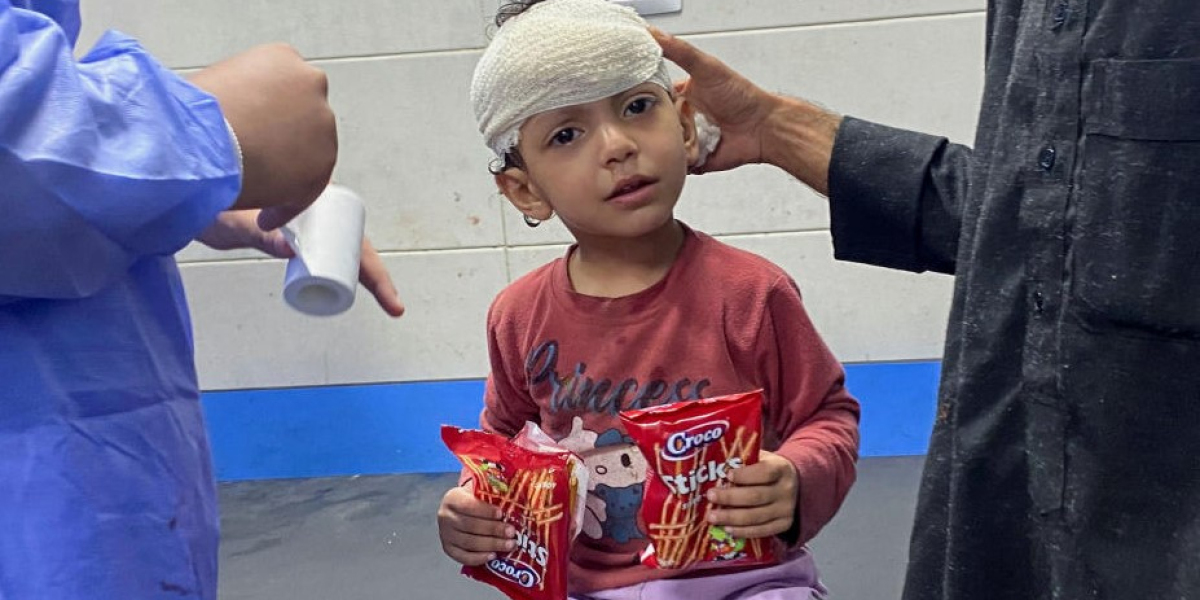The Gaza Strip faces an ongoing humanitarian and health crisis that has left millions of people in dire need of medical assistance. Years of conflict, political instability, and restricted access to resources have devastated Gaza’s healthcare system. Medical aid is not just important—it is essential for addressing this crisis, saving lives, and restoring hope to the region's most vulnerable populations.
This article explores the critical importance of medical aid for Gaza, the challenges faced by healthcare providers, and the efforts being made to support the region's health needs.
1. Understanding Gaza's Health Crisis
Gaza's health system is severely under-resourced due to decades of conflict and blockade. Hospitals and clinics struggle to provide basic healthcare, leaving many residents without access to essential medical services.
Key Statistics Highlighting the Crisis
- Nearly 50% of essential medications are often out of stock.
- More than 2 million residents are affected by limited healthcare resources.
- Over 70% of the population relies on humanitarian aid.
2. The Role of Medical Aid in Saving Lives
Medical aid plays a crucial role in addressing immediate and long-term health needs. This includes providing:
- Essential Medications: Supplies to treat chronic illnesses and life-threatening conditions.
- Medical Equipment: Tools for diagnostics, surgeries, and emergency care.
- Training for Healthcare Workers: Ensuring medical professionals can handle emergencies effectively.
Emergency Response
Medical aid organizations often deliver supplies during crises, such as bombing campaigns or pandemics, ensuring hospitals can treat casualties and contain disease outbreaks.
3. Addressing Chronic Illness and Preventable Diseases
Chronic illnesses such as diabetes, hypertension, and cancer are prevalent in Gaza but often go untreated due to a lack of medications and diagnostic tools. Preventable diseases, including waterborne illnesses, also pose significant threats.
How Medical Aid Helps
- Ensures the availability of essential medicines.
- Funds vaccination programs and disease prevention campaigns.
- Supports initiatives to improve water and sanitation systems.
4. Maternal and Child Healthcare Needs
Women and children are among the most vulnerable groups in Gaza. Many pregnant women lack access to prenatal care, and children face high rates of malnutrition and preventable illnesses.
Impact of Medical Aid on Women and Children
- Improves access to prenatal and postnatal care.
- Provides nutritional support and supplements for children.
- Supplies vaccines to prevent diseases such as polio and measles.
5. Mental Health Support in Gaza
Decades of conflict have taken a toll on the mental health of Gaza’s population. Many residents, including children, suffer from post-traumatic stress disorder (PTSD), anxiety, and depression.
Medical Aid for Mental Health
- Funds counseling and therapy programs.
- Trains local mental health professionals.
- Provides safe spaces for psychological recovery.
6. Overcoming Challenges to Deliver Medical Aid
Delivering medical aid to Gaza is not without challenges. Political restrictions, logistical issues, and security concerns often delay or limit the delivery of supplies.
Efforts to Overcome Barriers
- Collaboration with Local Partners: Working with local organizations to distribute aid effectively.
- Advocacy for Humanitarian Corridors: Ensuring uninterrupted access for medical supplies.
- Innovative Solutions: Utilizing telemedicine and mobile clinics to reach remote areas.
7. The Role of International Organizations
International humanitarian organizations play a pivotal role in supporting Gaza’s healthcare system. Groups like the World Health Organization (WHO), Red Cross, and Doctors Without Borders provide critical resources and expertise.
How They Contribute
- Donate medical supplies and equipment.
- Build and repair healthcare facilities.
- Advocate for increased global attention to Gaza’s health crisis.
8. The Responsibility of Global Communities
Addressing Gaza’s health crisis is not just the responsibility of aid organizations. Global communities must play their part by raising awareness, donating to trusted charities, and advocating for policy changes that allow for the free flow of medical resources.
9. How You Can Support Medical Aid for Gaza
Individual contributions can make a significant difference. Here are ways you can help:
- Donate to Reputable Organizations: Support groups like Islamic Relief, Medical Aid for Palestinians (MAP), or Red Crescent.
- Participate in Fundraising Campaigns: Organize or contribute to campaigns in your local community.
- Raise Awareness: Use social media platforms to inform others about the crisis and the importance of medical aid.
10. The Long-Term Benefits of Medical Aid
Sustained medical aid not only saves lives but also lays the foundation for a healthier and more resilient population in Gaza. By supporting healthcare infrastructure, medical aid fosters long-term development and stability in the region.
Conclusion:
The importance of medical aid for Gaza cannot be overstated. It is a lifeline for a population that has endured immense hardship, providing immediate relief and paving the way for a healthier future.
Whether through essential supplies, mental health support, or advocacy, every effort contributes to easing the suffering of millions. By standing in solidarity with the people of Gaza, individuals and global communities can help ensure that medical aid reaches those who need it most. Together, we can make a meaningful difference.








